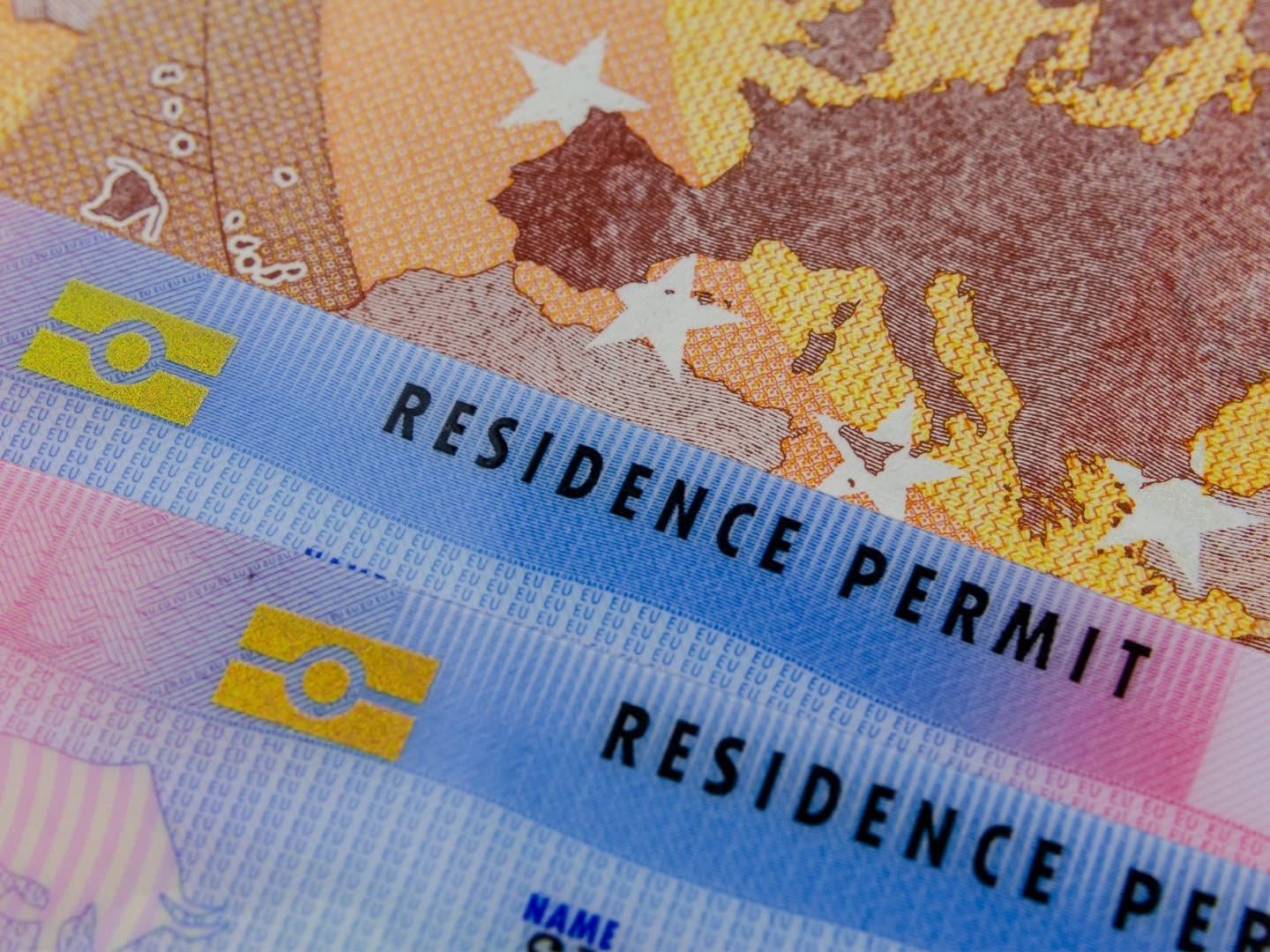How to open a bank account in Belgium as an expat
Find out why you should open a Belgian bank account and how to choose the right bank and manage your finances in Belgium.
Angelina
One of the important items on your relocation checklist is opening a bank account in Belgium. Once you have one, you'll get your IBAN and paying in Europe will become extremely easy.
Opening a bank account as an expat can be complicated if you don’t know what documents you need and what the process looks like. But with our guide, you’ll learn everything you need to open a bank account in Belgium as an expat.
In this guide we’ll explain:
- banking in Belgium
- who needs a Belgian bank account
- what’s needed to open a Belgian bank account
- how to open a Belgian bank account in a traditional bank and online
- bank accounts for non-residents and self-employed
- things to consider when choosing a bank
- the best Belgian and online banks for expats.
Banking in Belgium
In recent years, Belgium’s become a predominantly cashless society with contactless payments as one of the most popular means of payment. To make your life easier, make sure your bank issues cards from widely accepted providers like Mastercard or Visa that are supported by Apple Pay and Google Pay.
A standard bank account in Belgium allows you to deposit and withdraw funds with your debit bank card as well as manage your finances through online banking. In most banks, you can request a credit card too, though that might require you to have income above a set threshold.
With a Belgian bank account, you get an International Bank Account Number (IBAN) which makes transferring money within the Single Euro Payment Area (SEPA) easy and free.
A Belgian IBAN has 16 digits and consists of a country code, account number and a numeric verification key. It looks like this:
- BE61310126985517 which consists of [BE] + [2 check digits] + [12 digits of your bank account number]
You’ll also come across the BIC (Bank Identifier Code) and SWIFT (Society for Worldwide Interbank Financial Telecommunications) acronyms that are used interchangeably. They refer to the bank managing your account and are usually necessary for SEPA transfers.
For example, ING Belgium's BIC is BBRUBEBB and KBC’s BIC is KREDBEBB.
Do I need a Belgian bank account?

If you have a non-EU bank account, the chances are that having a bank account in Belgium is a must for you to pay rent and utilities, your phone contract, gym membership and receive your salary.
So if you ask us, you should open your bank account as soon as you move or even before to prevent any stress. It would also prevent you from paying unnecessary transaction and exchange fees when withdrawing cash and paying.
Having a Belgian bank account also helps you build up a local credit history which is helpful when you wish to get a credit or a mortgage for your dream house in the future!
What do I need to open a bank account in Belgium?

Opening a Belgian bank account is pretty straightforward. To do that you must be 18 or older, and be able to verify your identity and address in Belgium. But some banks allow you to register with your foreign address and even have youth accounts for those who’re underaged.
Hence, the documents you need to open a bank account in Belgium depend on the bank and the type of account you’d like to open.
Typical documents you need to provide with your application are:
- Belgian residence permit,
- passport with a valid visa,
- proof of address (rental contract or utility bill
And sometimes you’ll also be asked to submit:
- proof of your income employment contract or payslip for working professionals
- proof of enrolment in a local school or university for students
- consent from your representative (only for underaged)
How to open a Belgian bank account

Each bank has its process for opening a new account. One might require you to visit a bank in person and the other will let you submit everything online. If you prefer doing everything online, consider an internet-based, alternative banking service.
If you want the best of both worlds, many physical banks like ING and KBC have convenient mobile banking apps that offer most of their services online, making managing your finances simple. And you can always visit their service points if you've questions you prefer to ask in person.
If you prefer to waste no time and open a bank account before your arrival, look for a bank that offers special services for expats. All the bank accounts we’re about to mention have the option to open a bank account in Belgium online, directly from your home country. Then you just need to pop by the bank with your single permit or scan it with the app on your phone to verify your identity and address after you arrive in Belgium.
Opening an account with a traditional bank
In person:
- Prepare the documents required by your bank.
- Make an appointment and attend it with the printed copies of your documents.
- Wait for your confirmation, card, PIN, and other necessary documents to arrive by post within 3 – 5 working days.
- Activate your account and online banking.
Online:
- Choose the type of account you want to open.
- Complete the online application form.
- Verify your identity immediately through itsme app or identity card reader (eID). Alternatively, fill in your details manually and send/upload a copy of your identity card. That way your bank account will be opened within 5 working days.
- Wait for your confirmation, card, PIN, and other necessary documents to arrive by post within 3 - 5 working days.
- Activate your account and online banking.
Opening an account with an online bank
- Confirm your phone number or email.
- Download your bank’s mobile app and select the type of account you want.
- Fill in the online registration form.
- Verify your identity in the app.
- Create a PIN and get your virtual card.
- Wait for your physical card to arrive by post within 15 working days.
Opening a bank account in Belgium as a non-resident
While most of the traditional banks require you to have an address in Belgium, certain banks will allow you to have a non-resident account. In that case, you’ll most likely need to demonstrate your link to Belgium, for example in the form of real estate, business or relatives and visit the bank in Belgium in person to verify your identity.
Opening a Belgian bank account if you are self-employed
Whether you’re opening a new business or planning to work as a freelancer in Belgium, you should open a separate business account.
While you’re not legally obliged to have one as a freelancer, it can really help you with setting money aside for tax purposes and having a clear overview of your cash flow. Moreover, once you reach a certain income threshold, your bank might insist on opening a separate account anyway. So why not save yourself the hassle and do so straight away?
Pretty much every bank has special business accounts that make managing your transactions easy and sometimes have special perks such as cashback on your purchases, software integration or adding extra team members.
How much does it cost to open a Belgian bank account?

The costs of opening and maintaining a bank account depend on the bank and the plan that you choose. Most of the banks have basic plans with limited services completely free of charge. Alternatively, you can choose a plan of €3 – €20 that includes perks such as travel insurance, cashback on purchases or banking in other currencies.
Things to consider when opening a bank account in Belgium
1. Type of bank account
There are 2 main types of bank accounts:
- Current account: for everyday spending and paying bills.
- Savings account: for accumulating savings in euros.
You can also choose a package that has both a current and savings account. With a mobile app, you can easily deposit the funds from your current account to your savings account and the other way around.
2. Facilities
Consider the accessibility of ATMs in your city or other countries if you travel often. It’s always a good idea to opt for an international bank that has branches in different countries and supports different currencies.
3. Services
Depending on your needs, consider different plans available in the banks of your interest. Do you travel often? It’s probably helpful to have a package that includes travel insurance and free currency exchange.
4. Fees
Compare the maintenance fees for similar plans in different banks. Check what charges apply on money withdrawal and how many, if any, free withdrawals are included in a package.
5. User-friendliness
Make sure your bank has a user-friendly app or an online banking method that lets you receive and transfer funds quickly and easily. Note that in most of the traditional banks in Belgium you can’t confirm a transaction without a card reader.
Best banks in Belgium for expats
Let's take a look at the best banks for expats moving to Belgium, both traditional and mobile banks.
Best traditional banks in Belgium for expats
- KBC: voted as the best bank in Belgium 6 times in a row. It's praised by expats for great customer support and app design. KBC has a free and a Plus account for €3.25/month.
- ING: Dutch multinational bank with branches all over the world. Its website and app are very user-friendly and have most of the information available in English. They have special services tailored to expats such as liability insurance for your rent and a blocked account for your rental guarantee. The cheapest plan starts at €1.90/month, though it's free for clients under 26.
- BNP Paribas Fortis: the largest bank in Belgium, a subsidiary of BNP Paribas. One of the main disadvantages is its not-so-easy-to-navigate website and lack of English resources. BNP has 2 plans; a free Hello4You account for those under 28 and a premium account for €7.50/month.
Best mobile banks in Belgium for expats
- bunq: Dutch online bank offering sustainable banking and multi-currency support. It has 3 current account plans from €2.99/month to €17.99/month. It's the only online bank that allows you to open a savings account, free of charge!
- Revolut: British bank that offers multi-currency balance and no-fee currency exchange. It has 4 different plans, ranging from €0 to €13.99/month.
- N26: German online bank, one of the most popular ones in the game. It’s website is easy to use and it has a great blog with useful information for expats. N26 has 4 different personal plans from €0 to €16.90/month.
Opening a Belgian bank account brings you a step closer to integrating into a foreign country. Are you ready to manage your finances like a true local?
This article is for informational purposes only.
Please reach out to content @housinganywhere.com if you have any suggestions or questions about the content on this page. For legal advice or help with specific situations, we recommend you contact the appropriate authorities.
Related articles
In this article
Banking in Belgium
Do I need a Belgian bank account?
What do I need to open a bank account in Belgium?
How to open a Belgian bank account
Opening a bank account in Belgium as a non-resident
Opening a Belgian bank account if you are self-employed
How much does it cost to open a Belgian bank account?
Things to consider when opening a bank account in Belgium
Best banks in Belgium for expats
Find your home in Belgium
Find accommodation in cities across Belgium. Search for your accommodation now!
Start my Search

